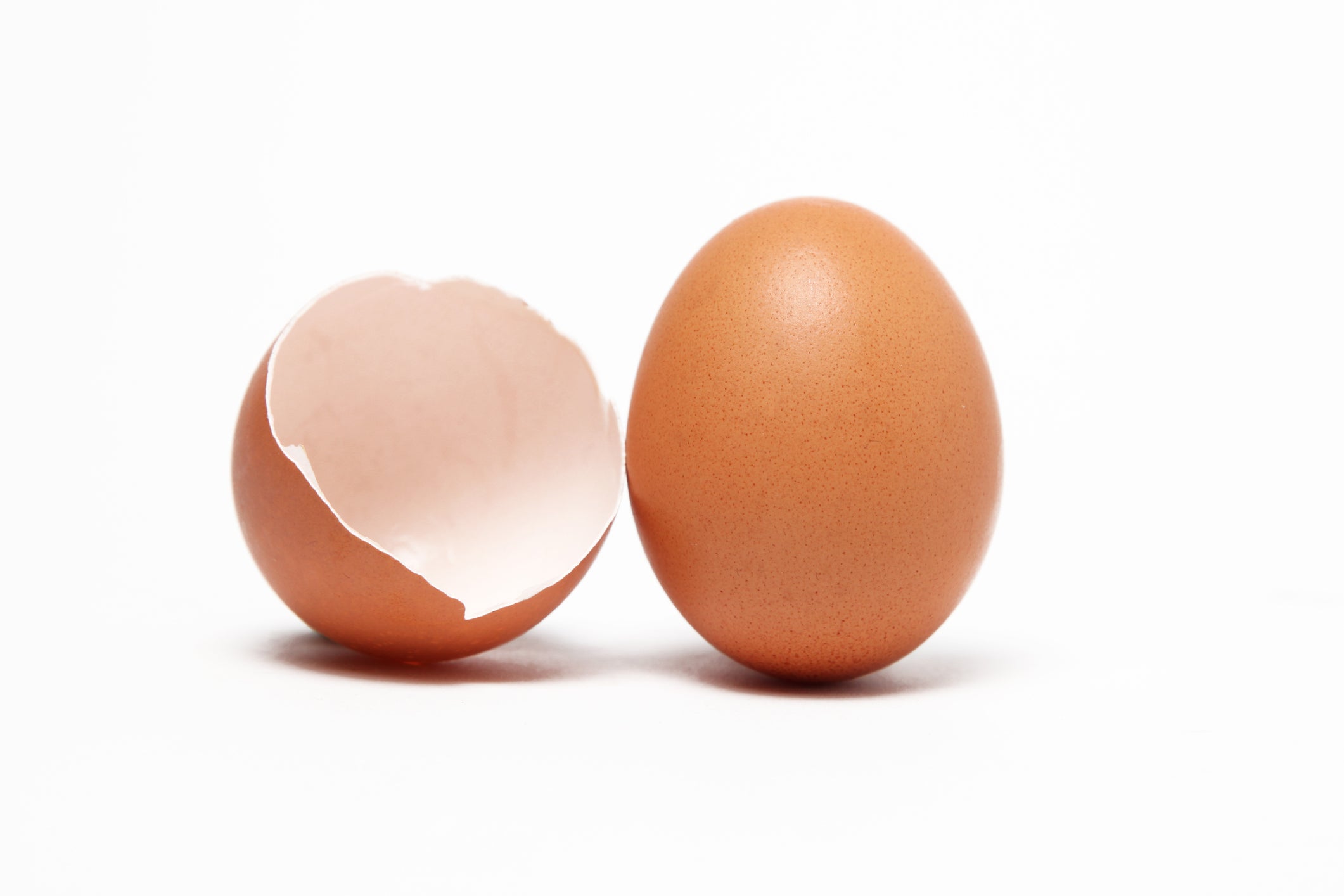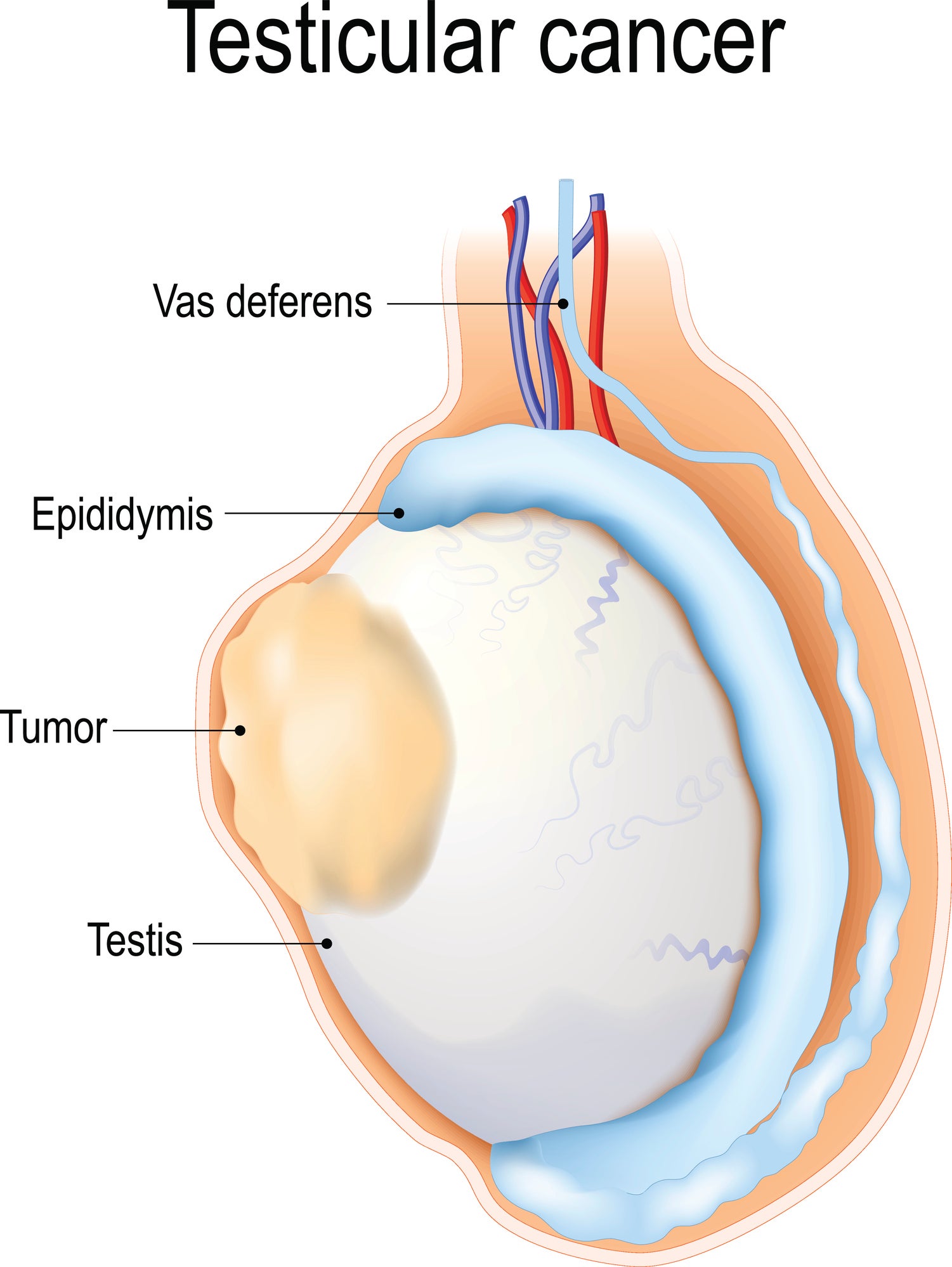-
Can getting kicked in the testicles affect fertility?

It’s a joke in Hollywood movies and a staple of America’s Funniest Home Videos, but if it happens to you, you’re unlikely to find it funny. Getting kicked or hit in the testicles can hurt badly, and if it’s significant enough, it can lead to complications that include sexual dysfunction, urological problems, low testosterone, and even infertility. Let’s look at why testicles are so sensitive, and how to know if your injury is serious enough for concern.
The testicles are vulnerable to injury because they hang outside of the body. These two, small, egg-shaped organs are contained in the scrotum, and having them outside the body keeps them 2 degrees lower than the rest of the body, the ideal temperature for sperm production. While that’s great news for sperm production, it means there are no muscles or bones protecting the testicles from blunt force trauma or penetrating injuries. Blunt trauma, resulting from being kicked or struck by an object, makes up 85 percent of testicular injuries. Penetrating injuries, which happen when something like a knife or bullet pierces the skin, makes up the other 15 percent. Vehicular accidents, bicycle collisions, animal bites, and machinery accidents are all sources of testicular injury.
If you suffer an injury to your testicles, you may experience a contusion, which involves swelling, bleeding, or bruising, cause by damage to the blood vessels. There are also other, more serious types of injuries. Testicular torsion happens when the spermatic cord inside the testicle is twisted, and this leads to tissue death. A rupture or fracture is a tear in the testicle covering, while a degloving means the scrotum skin has been torn away from the testicles. Your testicle may be forced out of position, which is called a dislocation, or it could be detached from the body.
No matter what kind of injury your testicles sustain, it’s going to hurt intensely, and that pain will probably last at least an hour. That’s because the genital area is packed full of nerve endings, so it is much more sensitive than areas of the body where the nerves are spread out more. You will probably feel referred pain in your stomach, because there are shared nerves and tissues between the abdomen and scrotum. To get over the pain, you may need to lie down, apply a cold compress, and take an over the counter pain reliever. Wearing supportive underwear can help because it limits movement.
If the pain lasts more than an hour, you should probably head to the emergency room. Bruising, fever, persistent nausea, difficulty urinating, or blood in the urine are also symptoms that necessitate emergency medical care. These symptoms could mean that enough damage has happened to impact your fertility. Testicular torsion and rupture are both conditions that require surgery to repair them, and if you get medical treatment quickly enough, normal function can be restored.
If the damage is not repaired in time, or there is damage to the epididymis that causes testicular shrinkage, it can impact your fertility. There is also a type of infection which may go undetected until days after the injury. Left untreated, it can cause the epididymis to be unable to store and carry sperm. Scar tissue from an injury may cause a reduction in sperm production. In other cases, a testicular injury can affect hormone production, making it difficult to maintain an erection or conceive a child. It’s always important to get a testicular injury checked out if you think it might be severe, so that you can protect your fertility.
At the Center for Vasectomy Reversal, we pride ourselves on helping men improve their fertility through uncompromising, concierge-level patient care. Under the direction of Dr. Joshua Green, our team provides state-of-the-art treatment for men who need a reversal of their vasectomy or have other fertility concerns. To learn more, contact us through our website or call 941-894-6428.
-
How to Prevent Burnout as a Father

When you are a parent, it seems there’s always something you need to be doing. Whether you’re working at your job or working at home, it seems like there’s always pressure to do more. Sometimes, men fail to take care of themselves, and this can cause a dad to experience burnout. Burnout is an actual condition, and it’s been especially prevalent since the onset of the pandemic. Left unchecked, it can wreck your health, your marriage, and your friendships. How can you prevent this? Recognize that self-care doesn’t necessarily mean pampering, but it does mean taking care of yourself, so you’ll be strong enough to take care of others. Here are some tips for avoiding burnout.
- Take a timeout. Timeouts are not just for kids, they’re good for adults, too. Taking 15 minutes to take a break can help you catch your breath so that you can re-engage with your family in a better headspace.
- Get some sleep. Research shows that people who get eight hours of sleep each night are more productive. Even if you are busy, prioritize your sleep, rather than skimping on rest in order to get ahead.
- Go outside and exercise. It’s easy to feel exhausted, grumpy, and irritable if you haven’t been getting enough exercise. Something as simple as taking a walk can boost your energy and clear your head.
- Connect with your wife. Spending time with your spouse, listening to her and talking to her, can improve your relationship and strengthen your ability to work as a team. Raising a family is hectic, and you each need a partner, so make this a priority.
- Have an adventure. Try something new, whether it’s a new creative hobby or an epic outdoor adventure spent kayaking, rock climbing, surfing, or deep sea fishing. You can do this by yourself, with some buddies, or take your wife and children on a fun adventure with you. The family time you spend doing something new and fun can strengthen your bond.
- Spend some time in quiet reflection. Learn to meditate, institute a daily prayer routine, or simply sit each day or a few minutes and quietly ask yourself a few questions. Think about something you recently learned, pick words to describe your week, identify your biggest challenges and wins, and think about how you can make your next week better than this one. Think about your priorities or identify areas of stress. It doesn’t really matter what you think about, as long as you are alone with your thoughts for a little while.
- Make time to hang out without kids. Don’t neglect your social life just because you have kids. Spend time out with friends, and spend time out with your wife, remembering who you used to be before you were a dad.
At the Center for Vasectomy Reversal, we love helping people grow their families. We pride ourselves on helping men improve their fertility through uncompromising, concierge-level patient care. Under the direction of Dr. Joshua Green, our team provides state-of-the-art treatment for men who need a reversal of their vasectomy or have other fertility concerns. To learn more, contact us through our website or call 941-894-6428.
-
How to Perform Testicular Self-Exams

Did you know that testicular cancer is one of the most common cancers affecting young men? Fortunately, survival rates are high, but when diagnosis comes during the later stages, patients often require chemotherapy, which can not only cause unfortunate side effects but can also impact fertility. It’s best to catch it in the early stages, so that the cancer can be removed through surgery, with no other treatment required. How can you catch it? With regular testicular self-exams. Here, we offer instructions on how to effectively perform these exams.
The first step is to know your own anatomy. If one testicle is larger or hangs lower than the other one, don’t be alarmed, because this is normal. Be aware that the epididymis is located at the back and top of each testicle and can be mistaken for a mass. Feel for it to get a sense of where it is: it will feel softer and bumpier than the testicle.
Once you have a good understanding of how your testicles normally feel, it’s time to start performing a monthly exam. It’s best to do it in the shower because a warm shower will make the exam easier by relaxing the scrotum and the surrounding muscles. Examine each testicle separately, following these steps.
- Cup the testicle, using both hands.
- Roll it between the thumb and fingers, using slight pressure.
- Feel for lumps or irregularities.
If you do find something unusual, see your doctor as soon as possible. Typically, men wait four to six months to see a doctor, and this is a mistake, because it can allow the cancer to spread. Don’t wait too long out of embarrassment or fear, the doctor has seen it all before and it won’t be a painful exam. Your doctor will perform a quick exam, talk to you, and send you for an ultrasound. Most of the time, testicular masses are not cancerous, but it’s important to see the doctor to make sure. Even a benign condition can cause pain and threaten your fertility, including cysts, infection, injury, varicocele, or hydrocele.
There are other symptoms and signs of testicular cancer as well, so it’s smart to keep an eye out for them. A lump or enlarged testicle is typically the first sign, and other symptoms could mean that the cancer has spread. These symptoms include pain, discomfort, or numbness in the testicle or scrotum, change in the way your testicle feels, or a feeling of heaviness, a dull ache in the lower abdomen or groin, or sudden build-up of fluid in the scrotum. You might also experience breast tenderness or growth, lower back pain, shortness of breath, chest pain, and bloody sputum or phlegm. Sometimes a blood clot can form because of testicular cancer, causing swelling in the legs and shortness of breath. Any suspicious symptoms warrant a visit to the doctor as soon as possible.
At the Center for Vasectomy Reversal, we pride ourselves on helping men improve their fertility through uncompromising, concierge-level patient care. Under the direction of Dr. Joshua Green, our team provides state-of-the-art treatment for men who need a reversal of their vasectomy or have other fertility concerns. To learn more, contact us through our website or call 941-894-6428.
-
The Importance of Brotherhood

Close friendships are important for our health and wellbeing, and all humans have an innate desire to connect with others. In a recent survey from the Survey Center on American Life, however, only about one in five men reported receiving emotional support from a friend within the last week. The number is about double that for women. According to that same survey, fewer than half of men are satisfied with their friendships. Why do men have trouble making friends and maintaining friendships? Does it matter?
In a word, yes. Research indicates that men need close friendships with other men to help them cope with anxiety, stress, and depression by providing support and a sense of belonging. The reason men have trouble connecting with other men may be that they’re too busy, have difficulty finding other men with whom they share interests, or simply prioritize work and other obligations over finding and keeping friends. Additionally, because men are conditioned to be independent and self-sufficient, which can make it difficult for them to reach out to others when they need support or companionship. Boys grow up believing that relationships and emotional vulnerability are feminine, and this makes it harder for them to develop true friendships.
Men who do not have close friendships, though, run the risk of emotional isolation, which is a leading factor in medical conditions like diabetes, obesity, Alzheimer’s heart disease, high blood pressure, and more. Often, men mistakenly believe that having a romantic partner is enough, relying on the women in their lives to provide support and allow them to be vulnerable. This, however, can strain a relationship. No one person can be all things to another person, and it’s important to have different people in your life, to provide you with different perspectives. Healthy male friendships are an important part of a man’s community.
What constitutes a healthy male friendship? Open, healthy male relationships have mutual respect, trust, and support, and communicate openly and honestly. There’s also a willingness to be there for each other, during the good times and the bad. Healthy male friendships are built on shared interests and activities, and there’s a balance of give and take. Both men can be open with each other, and there’s a sense of acceptance and confidence to be themselves without being judged. Friendships can evolve and grow over time, as the men pass through different stages of life.
If you are a man who struggles to find friends, how can you go about forging friendships? Start by getting involved in activities that interest you. This is a great way to meet like-minded individuals, and friendships often develop naturally when you interact on a team or in a class. Don’t be afraid to reach out and ask someone if he’d like to have lunch or grab coffee with you, so that you can get to know each other better. Be genuine and a good listener, and be proactive about maintaining friendships, making time for your friends and being there when they need you. Over time, these new friendships can develop into deep, meaningful, long-lasting relationships.
Making friends is important for your mental wellbeing, as well as your physical health. At the Center for Vasectomy Reversal, we are concerned with every aspect of men’s health, and we pride ourselves on helping men improve their fertility through uncompromising, concierge-level patient care. Under the direction of Dr. Joshua Green, our team provides state-of-the-art treatment for men who need a reversal of their vasectomy or have other fertility concerns. To learn more, contact us through our website or call 941-894-6428.
Recent Posts
Popular Posts
categories
- Uncategorized
- Sperm Retrieval
- vasectomy reversal
- Emergency
- Dr. Green
- sperm count
- fertility
- male infertility
- MESA
- medical care
- low sperm count
- IVF
- male fertility testing
- anesthesia
- pregnancy
- sperm aspiration
- semen analysis
- post-vasectomy pain syndrome
- infertility
- VE
- anti-sperm antibodies
- older dad
- general anesthesia
- gender reveal party
- post-operative infections
- baby name
- parent
- baby's first year
- fertilization process
- spinal anesthesia
- ACS Fellow
- nutrition tips
- concierge-level care
- fertility planning app
- azoospermia
- out-of-town patients
- V-V
- post-vasectomy reversal
- conceiving
- vasectomy
- vasoepididymostomy
- smoking
- sperm quality
- baby registry
- infographic
- surgical care
- surgical consultation process
- prostate cancer
- baby gender
- family time
- COVID
- Baby Shower
- Child Care
- Halloween Costume Ideas for Babies
- Halloween
- Halloween Safety Tips
- Celebrity Infertility Spotlight
- Postpartum
- testosterone
- Father's Day
- Father
- Men's Health
- Thanksgiving
- Pregnancy Announcement
- Parenting Tips
- Sperm
